Meteorology-Climatology
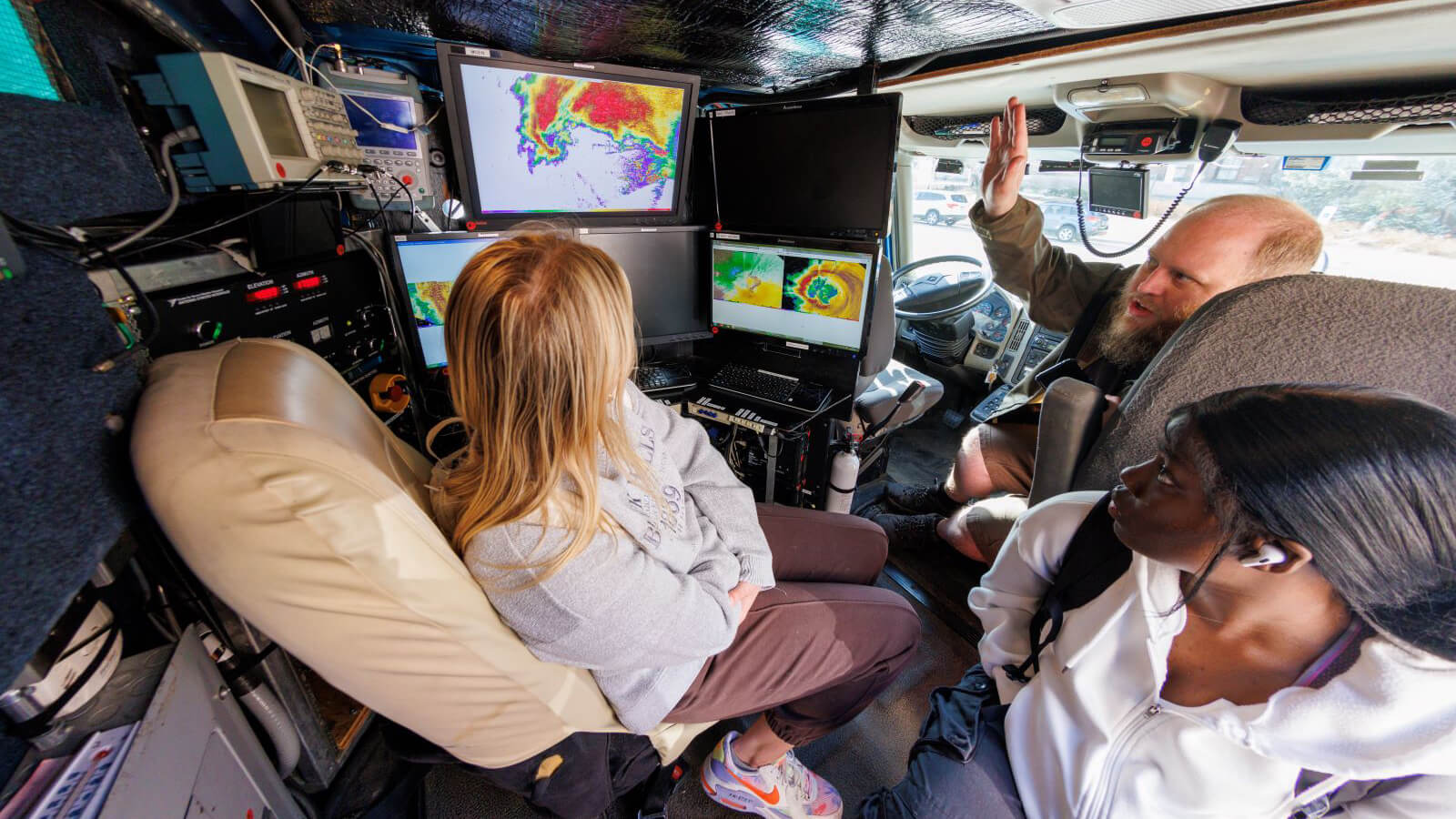
-
College
-
Hours Required
120
The Nebraska Difference
Curiosity
Discover what moves you with a variety of academic disciplines.
Flexibility & Choice
Customize your degree with course choices. Add a minor or second major.
Hands-On Experience
Build knowledge, skills and experience in and out of the classroom.
Limitless Career Paths
Connect your major, interests and goals to any field.

Program Features
Focus and Range
Dive deep into your meteorology-climatology major while taking a wide variety of courses across all areas in the College of Arts and Sciences. Graduate academically well-rounded and eager to keep learning. Use your collaboration and communication skills to address complex problems and make a positive impact professionally and personally.
1-to-1 Academic Advising and Career Coaching
Along with your faculty, professional academic advisors and career coaches will help you make a one-of-a-kind degree plan. We are focused on your success, while at Nebraska and after graduation, whether your goal is employment or graduate/professional school.
Learn From the Experts
Meteorology-climatology faculty are part of weather and climate research projects worldwide and specialize in earth, air and water, from the Antarctic to the Arctic.

Notable Courses
Weather and Climate (METR 100)
Physical behavior of the atmosphere; elements of weather and climate, weather map analysis and forecasting. Atmospheric circulation, precipitation, severe weather, air pollution and weather radar.
Introduction to Scientific Programming in Atmospheric Science (METR 153)
Problem solving with computers using MATLAB, including language syntax, data types, program organization, problem-solving methods, algorithm design and verification.
Global Warming: Science, Impact, and Solutions (METR 270)
Climate change at global, regional and local scales, with exploration of impacts, vulnerability and adaptations.
Severe Storms Meteorology (METR 443)
Dynamics, forecasting and case studies of high-impact summertime and wintertime weather hazards.
Radar Meteorology (METR 463)
Fundamental principles of weather radars and application through field observations of severe thunderstorms.
Tropical Meteorology (METR 471)
Atmospheric phenomena unique to the tropics and their connection to the global circulation.
Huskers Do Big Things
Internships
- Intern, Los Alamos National Laboratory
- Weather Intern, Channel 8
- Research Assistant, University of Nebraska–Lincoln
- Intern, National Weather Service, Hastings, Nebraska
- Intern, NASA
- Intern, MMC Contractor
Careers
- Environment scientist II, North Dakota Department of Environment Quality
- Palace acquire program, U.S. Air Force 557 Weather Wing
- Systems engineer, Northrop Grumman
- Coding specialist, National Research Corporation
- Meteorologist, National Weather Service
Graduate Schools
- Master’s degree, Environment and Society, Utah State University
- Master’s degree, Geospatial Analysis, East Tennessee State University
- Master’s degree, Meteorology, University of Oklahoma
- Master’s degree, Meteorology, University of Nebraska–Lincoln
- Ph.D., Earth & Atmospheric Science, Meteorology/Climatology, University of Nebraska–Lincoln
Outside the Classroom
Depending on your major, interests and goals, you can choose to do research, work as an intern, study abroad, become a leader or serve your community. The university’s Experiential Learning requirement ensures you have at least one of these transformative learning experiences; students in the College of Arts and Sciences typically complete at least two.
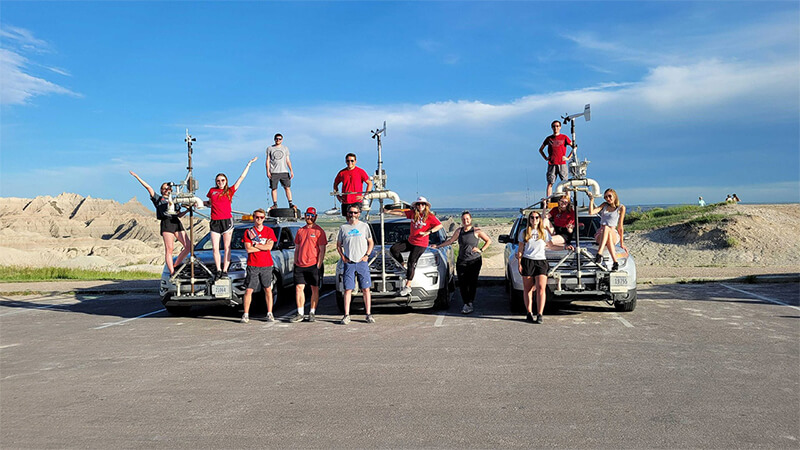
Work alongside a faculty member as a research assistant or design your own research project through the Undergraduate Creative Activities and Research Experience (UCARE) program.

Explore a wide variety of local, national and international internships. Connect with our career coaches to identify opportunities and document the skills and experience you gain on the job.
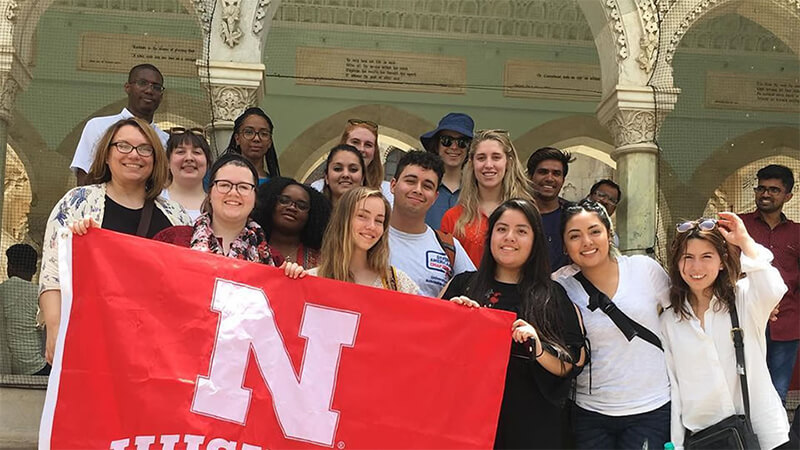
Join other students on a faculty-led program or connect with our Global Experiences Office to find an affiliate program in almost any location you can imagine.
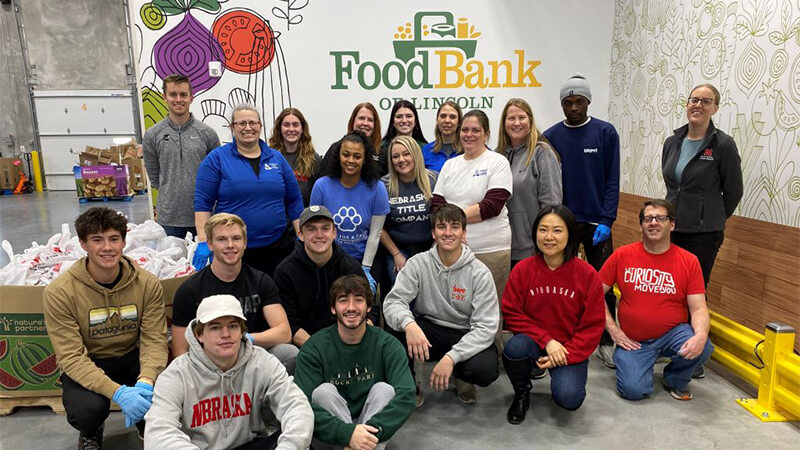
Get involved in one of the 540+ student organizations available at Nebraska. Meet students who share your interests, become a leader or serve the community.
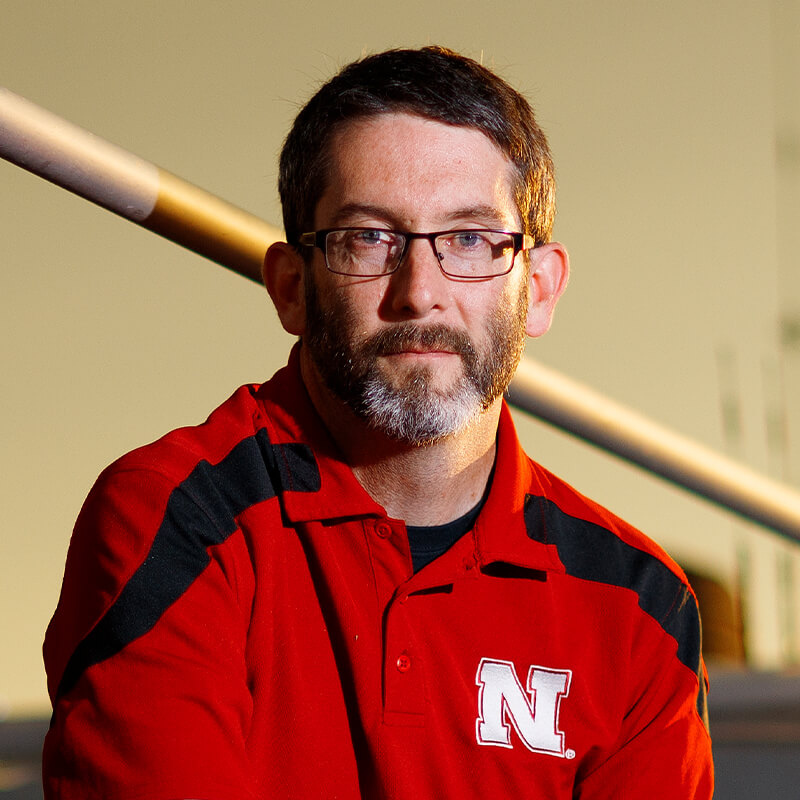
Featured Faculty
Adam Houston, Professor
Dr. Houston studies cloud-scale and mesoscale phenomena to increase the knowledge and prediction of severe storms. He leads the Severe Storms Research Group and is one of seven principal researchers for the multi-institutional TORUS (Targeted Observation by Radars and UAS of Supercells) project.
Academics & Experiential Learning
- Our motto is Academics + Experience = Opportunities. Employers and graduate/professional schools are looking for students who have a strong academic background and hands-on experience.
- Meteorology-climatology majors regularly engage in research or internships, and many study abroad or get involved in service or leadership on campus and beyond.
Career Preparedness
- CASC 200: Career Development in Arts and Sciences. Explore your interests, abilities and values while identifying career options and preparing to apply for internships, jobs or graduate/professional school.
Community
- Join Students in Earth and Atmospheric Science (SEAS) and connect with students and faculty as well as guest speakers and alumni.
- Get involved with the student chapter of the American Meteorological Society.
Have Questions? We're Here to Help
If you have questions about the Meteorology-Climatology major or navigating the application process, contact us.
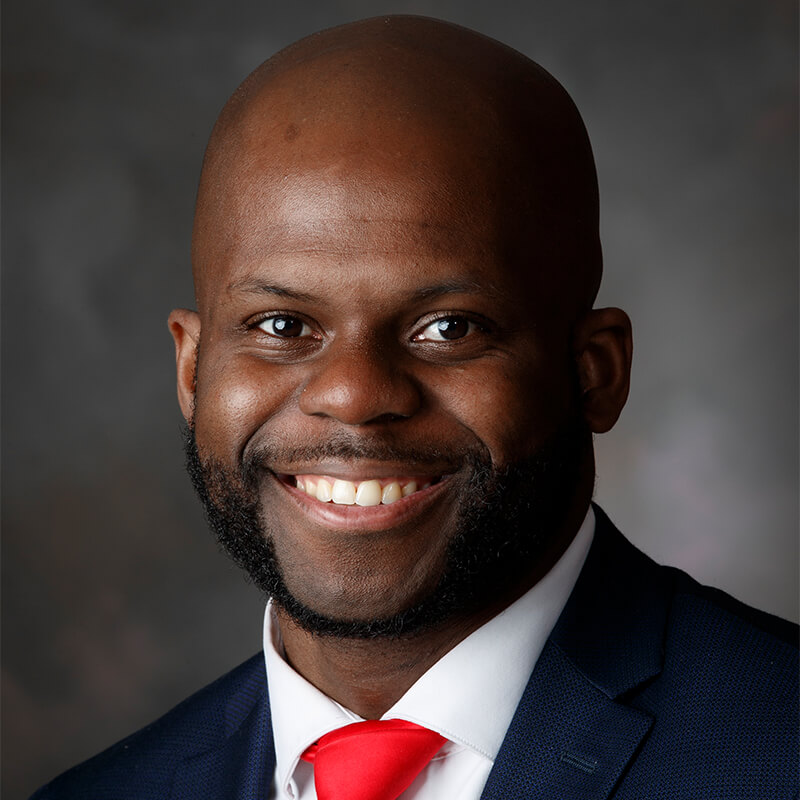
- Contact Name
- Nicholas Gordon
- Contact Title
- Director of Recruitment
- Phone
-
-